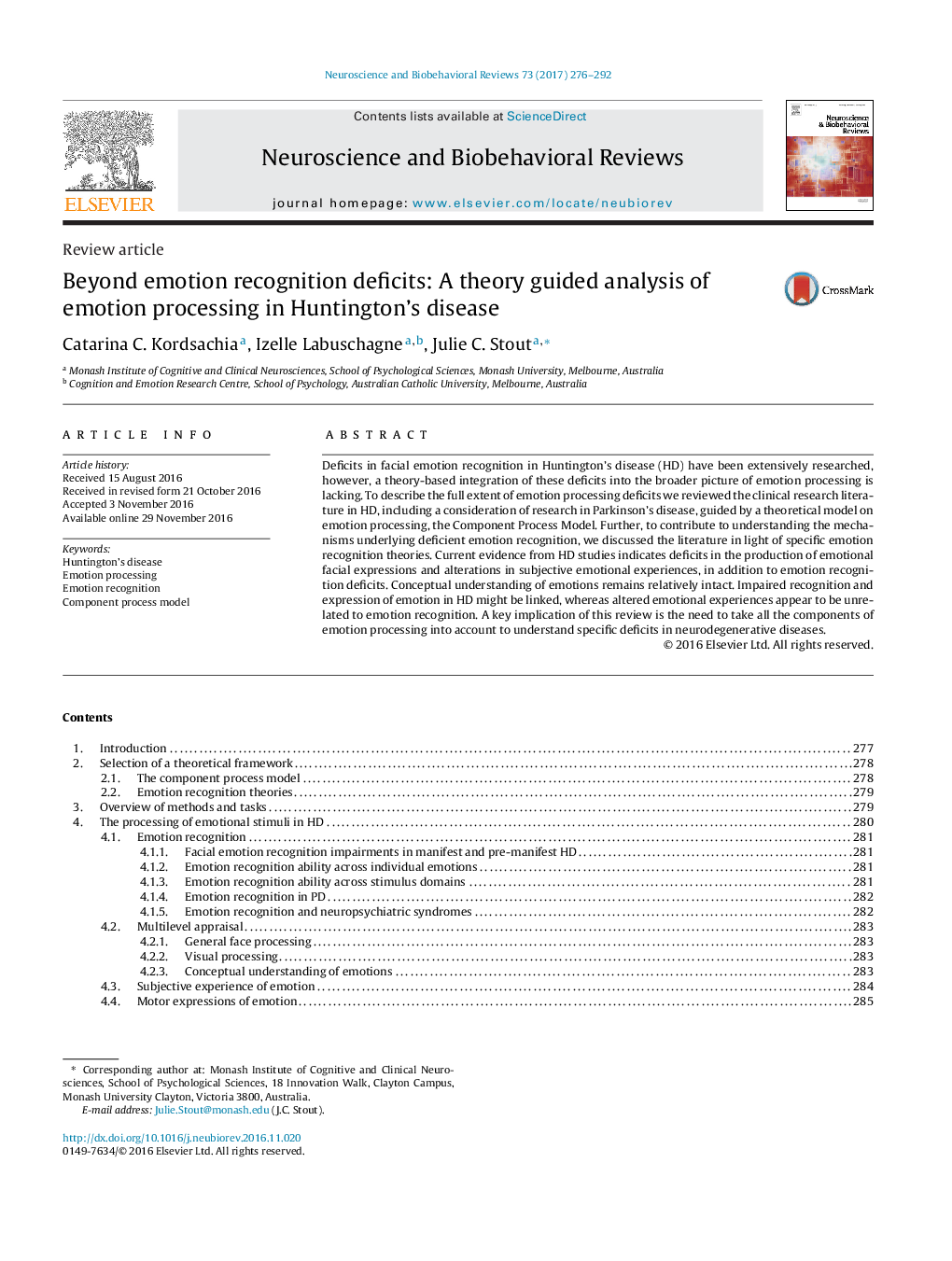| Article ID | Journal | Published Year | Pages | File Type |
|---|---|---|---|---|
| 5043541 | Neuroscience & Biobehavioral Reviews | 2017 | 17 Pages |
â¢Emotion processing in HD is characterised based on a theoretical framework.â¢Emotion processing deficits in HD include impaired recognition and expression of emotions.â¢Subjective experiences have been found both to be exaggerated and diminished in HD.â¢Impaired recognition and production of emotional facial expressions may be associated.â¢The ability to understand emotions conceptually remains relatively intact in HD.
Deficits in facial emotion recognition in Huntington's disease (HD) have been extensively researched, however, a theory-based integration of these deficits into the broader picture of emotion processing is lacking. To describe the full extent of emotion processing deficits we reviewed the clinical research literature in HD, including a consideration of research in Parkinson's disease, guided by a theoretical model on emotion processing, the Component Process Model. Further, to contribute to understanding the mechanisms underlying deficient emotion recognition, we discussed the literature in light of specific emotion recognition theories. Current evidence from HD studies indicates deficits in the production of emotional facial expressions and alterations in subjective emotional experiences, in addition to emotion recognition deficits. Conceptual understanding of emotions remains relatively intact. Impaired recognition and expression of emotion in HD might be linked, whereas altered emotional experiences appear to be unrelated to emotion recognition. A key implication of this review is the need to take all the components of emotion processing into account to understand specific deficits in neurodegenerative diseases.
